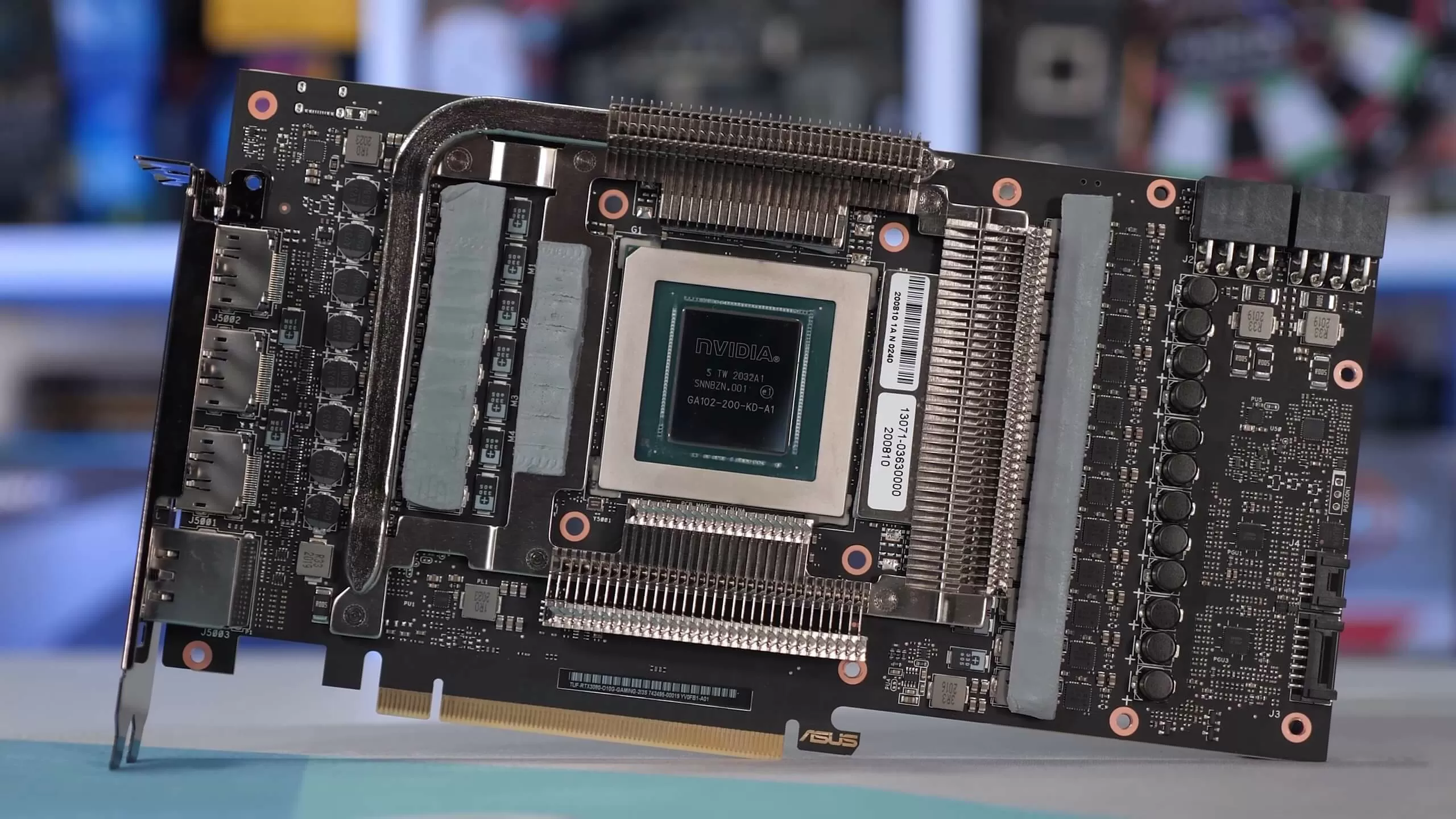Navigation
Install the app
How to install the app on iOS
Follow along with the video below to see how to install our site as a web app on your home screen.

Note: this_feature_currently_requires_accessing_site_using_safari
More options
You are using an out of date browser. It may not display this or other websites correctly.
You should upgrade or use an alternative browser.
You should upgrade or use an alternative browser.
Building a gaming pc? (1 Viewer)
- Thread starterDomePatrol2005
- Start date
- Latest activity Latest activity:
- Joined
- Aug 1, 1997
- Messages
- 23,700
- Reaction score
- 20,905
- Age
- 53
- Location
- The People's Republic of Indianastan
Offline
That's a great tip. Thanks!My cousin found a 3080 on CDW of all places.
They have lots of cards but they're $300 over msrp. I'll wait, but I might use that site when the price drops.
- Banned
- #49
I found a few cards on FB marketplace that weren't too high over MSRP - but you have to remember to add the tax in to appreciate when someone is just looking to make back what they paid. I got my 3090 FE this way - it was priced $200 over MSRP, but ~70% of that was just what local tax added to the cost of the card. The rest was the value of not having to refresh Best Buy every morning to see if new stock arrived.
I found a Zotac 3070 for $700, which was just $7-8 over its $640 MSRP + local tax. I think people look at the 3070 and say "that's a $500 card, why is this $200 more?", but the $500 price is just for the FE cards - AIBs design their own PCBs and cooling solutions, buy the processor and design pretty boxes. So, it's $500 for the reference design or more for a partner card. Then add tax. Granted that the Zotac is among the worst 3070s, but it's still a 3070.
Be careful with third party manufacturers with these cards. This video's from three months ago but no telling if these issues have been addressed or if you're looking at old stock where they haven't.
- Banned
- #50
I haven't heard about this issue in a long time, which makes me think that the driver updates NVidia released in September or October of last year fixed the issue.
I also seem to recall that this was only an issue for cards that were overclocked, whether that was from the manufacturer or otherwise.
This probably isn't an issue today, but if you're worried about it, make sure you have a warranty.
If I recall correctly those updates effectively underclocked the cards so that they wouldn't be as likely to crash but it was just a band-aid fix. The problem is/was at the hardware level but it's only with some manufacturers that send their cards out overclocked out of the box. I haven't done any more research to find out if the hardware issue's actually been fixed, but if you happen across an older version then it definitely still exists and you won't be able to "max" your card if that's what you want.
Reference cards should be unaffected because they're obviously built exactly to specs. The problem was with third-party manufacturers cutting corners.
Offline
The problem had to do with the capacitors on the backside of the chip. Cards with 6 of the larger POSCAPS can't handle frequencies above 2 GHZ. Cards with the smaller MLCC capacitors and cards that have a combination of POSCAP and MLCC capacitors do not have this issue. They released a new set of drivers which underclocked the cards to fix the issue and changed how they handled the capacitors on the back of the cards. There is a chart at the link below that lists which cards have which capacitor configuration. Not that it honestly matters, nobody can get any of these cards anyways.I haven't heard about this issue in a long time, which makes me think that the driver updates NVidia released in September or October of last year fixed the issue.
I also seem to recall that this was only an issue for cards that were overclocked, whether that was from the manufacturer or otherwise.
This probably isn't an issue today, but if you're worried about it, make sure you have a warranty.

Capacitor issues are causing RTX 3080/3090 crashes
Follow up: Get your driver fix: graphics card makers respond to RTX 30-series capacitor controversy
- Banned
- #52
The problem had to do with the capacitors on the backside of the chip. Cards with 6 of the larger POSCAPS can't handle frequencies above 2 GHZ. Cards with the smaller MLCC capacitors and cards that have a combination of POSCAP and MLCC capacitors do not have this issue. They released a new set of drivers which underclocked the cards to fix the issue and changed how they handled the capacitors on the back of the cards. There is a chart at the link below that lists which cards have which capacitor configuration. Not that it honestly matters, nobody can get any of these cards anyways.
.Capacitor issues are causing RTX 3080/3090 crashes
Follow up: Get your driver fix: graphics card makers respond to RTX 30-series capacitor controversywww.techspot.com
Much better explanation. I hadn't bothered to rewatch the video. I do remember though that even slight instabilities with your PSU or power coming into your home could trigger problems and it was the result of manufacturers not strictly following reference specs. But it was also only an issue if you were pushing for bleeding edge overclocking which is a selling point for some people.
- Banned
- #53
Yes, that sounds like the correct explanation. I don't hear about the issue any longer though, so I wouldn't be concerned about it from a system stability standpoint - but it's good for people to know why some cards won't perform like others. This is why I ponied up for the 3090 FE instead of rolling the dice on the Zotac 3070.
I wonder if the drivers have some kind of heuristic that monitors the electrical state to dial the settings back before it becomes unstable, or if it just does a blanket underclock unless the model is in a table with known good cards?
I believe it was just a blanket underclock for those models. It wasn't specifically about voltage or amperage, at least not directly, it was an issue where the caps are so sensitive that higher frequencies were causing bleed over if they weren't up to reference specs. A fluctuation in voltage, even just the small wobble from a not quite top of the line PSU or from poor home wiring, would be enough of a spike to cause instability.
Assuming manufacturers have started pushing out cards with the right caps then it isn't an issue. I imagine a lot of people are still getting older versions of the cards through ebay and the like and those particular cards will never be able to reach top overclocking speeds. For someone who doesn't care about overclocking I'd figure it wouldn't make any real difference though.
- Joined
- Aug 1, 1997
- Messages
- 23,700
- Reaction score
- 20,905
- Age
- 53
- Location
- The People's Republic of Indianastan
Offline

Newegg Responds to GPU, CPU Shortages With Controversial Lottery System
Apparently, the lottery system has a catch: the in-demand RTX 3000 graphics cards or AMD CPUs have to be bought in combo deals, forcing the consumer to buy them with a motherboard.
- Moderator
- #55
Online
Newegg Responds to GPU, CPU Shortages With Controversial Lottery System
Apparently, the lottery system has a catch: the in-demand RTX 3000 graphics cards or AMD CPUs have to be bought in combo deals, forcing the consumer to buy them with a motherboard.www.pcmag.com
Just bananas. I wonder how much of this is real shortages and how much is just marketing. It feels like they're taking advantage of market conditions more than anything else.
- Joined
- Aug 1, 1997
- Messages
- 23,700
- Reaction score
- 20,905
- Age
- 53
- Location
- The People's Republic of Indianastan
Offline
Newegg's bundles to buy an AMD CPU, and an Nvidia GPU also require you to buy an, incompatible, Intel motherboard.If people are worried about bots buying the cards faster than humans, a lottery system is a good way to combat that by randomizing the entrants. It also takes the strain off of the checkout system because registering for a lottery doesn't tie into the inventory system. Finally, optionally, it would allow them time to try to identify fake or duplicate customers - if they care.
My idea months ago was similar - randomize orders in 5 minute blocks before applying to inventory and notifying the customer that their order was complete or if they are on back order.
A more simple, but less profitable, solution would be the "I am not a bot" button.
- Moderator
- #57
Online
Currently in the process of building a 2nd workstation. All I need is a gpu and cpu. You're going to have to join Stockdrop and Falcodrin discord and Download the bestbuy app.
Bestbuy and Amazon is way more dependable than Newegg. I wouldn't support Newegg.. They've been awful through this whole ordeal.
Bestbuy and Amazon is way more dependable than Newegg. I wouldn't support Newegg.. They've been awful through this whole ordeal.
boutte
Super Forum Fanatic
- Joined
- Oct 18, 2004
- Messages
- 13,551
- Reaction score
- 17,301
- Age
- 70
Offline
Looking at this. What do guys think?
https://www.amazon.com/Dell-G5-Octa-Core-i7-10700F-Bluetooth/dp/B08HYTMJHS/ref=sr_1_1_sspa?crid=9U7KBQ9MG9EE&dchild=1&keywords=gaming+computers+desktops+on+sale&qid=1612310423&refinements=p_n_feature_two_browse-bin%3A5446812011%2Cp_36%3A100000-150000%2Cp_n_feature_five_browse-bin%3A13580790011&rnid=2421879011&s=pc&sprefix=gaming+computers%2Celectronics%2C178&sr=1-1-spons&psc=1&spLa=ZW5jcnlwdGVkUXVhbGlmaWVyPUExT0NQSEZSVU9RVVhDJmVuY3J5cHRlZElkPUEwODMxNDkxMjJOTkNLOFQwSUxKVCZlbmNyeXB0ZWRBZElkPUEwOTA5MTY5MlAxR1QyWllSUlg0UCZ3aWRnZXROYW1lPXNwX2F0ZiZhY3Rpb249Y2xpY2tSZWRpcmVjdCZkb05vdExvZ0NsaWNrPXRydWU=
It's a link to Amazon. Thought it would show a picture of the page.
https://www.amazon.com/Dell-G5-Octa-Core-i7-10700F-Bluetooth/dp/B08HYTMJHS/ref=sr_1_1_sspa?crid=9U7KBQ9MG9EE&dchild=1&keywords=gaming+computers+desktops+on+sale&qid=1612310423&refinements=p_n_feature_two_browse-bin%3A5446812011%2Cp_36%3A100000-150000%2Cp_n_feature_five_browse-bin%3A13580790011&rnid=2421879011&s=pc&sprefix=gaming+computers%2Celectronics%2C178&sr=1-1-spons&psc=1&spLa=ZW5jcnlwdGVkUXVhbGlmaWVyPUExT0NQSEZSVU9RVVhDJmVuY3J5cHRlZElkPUEwODMxNDkxMjJOTkNLOFQwSUxKVCZlbmNyeXB0ZWRBZElkPUEwOTA5MTY5MlAxR1QyWllSUlg0UCZ3aWRnZXROYW1lPXNwX2F0ZiZhY3Rpb249Y2xpY2tSZWRpcmVjdCZkb05vdExvZ0NsaWNrPXRydWU=
It's a link to Amazon. Thought it would show a picture of the page.
- Joined
- Aug 1, 1997
- Messages
- 23,700
- Reaction score
- 20,905
- Age
- 53
- Location
- The People's Republic of Indianastan
Offline
Link isn't working for meLooking at this. What do guys think?
https://www.amazon.com/Dell-G5-Octa-Core-i7-10700F-Bluetooth/dp/B08HYTMJHS/ref=sr_1_1_sspa?crid=9U7KBQ9MG9EE&dchild=1&keywords=gaming+computers+desktops+on+sale&qid=1612310423&refinements=p_n_feature_two_browse-bin%3A5446812011%2Cp_36%3A100000-150000%2Cp_n_feature_five_browse-bin%3A13580790011&rnid=2421879011&s=pc&sprefix=gaming+computers%2Celectronics%2C178&sr=1-1-spons&psc=1&spLa=ZW5jcnlwdGVkUXVhbGlmaWVyPUExT0NQSEZSVU9RVVhDJmVuY3J5cHRlZElkPUEwODMxNDkxMjJOTkNLOFQwSUxKVCZlbmNyeXB0ZWRBZElkPUEwOTA5MTY5MlAxR1QyWllSUlg0UCZ3aWRnZXROYW1lPXNwX2F0ZiZhY3Rpb249Y2xpY2tSZWRpcmVjdCZkb05vdExvZ0NsaWNrPXRydWU=
It's a link to Amazon. Thought it would show a picture of the page.
- Moderator
- #60
Online
Users who are viewing this thread
Total: 2 (members: 0, guests: 2)
